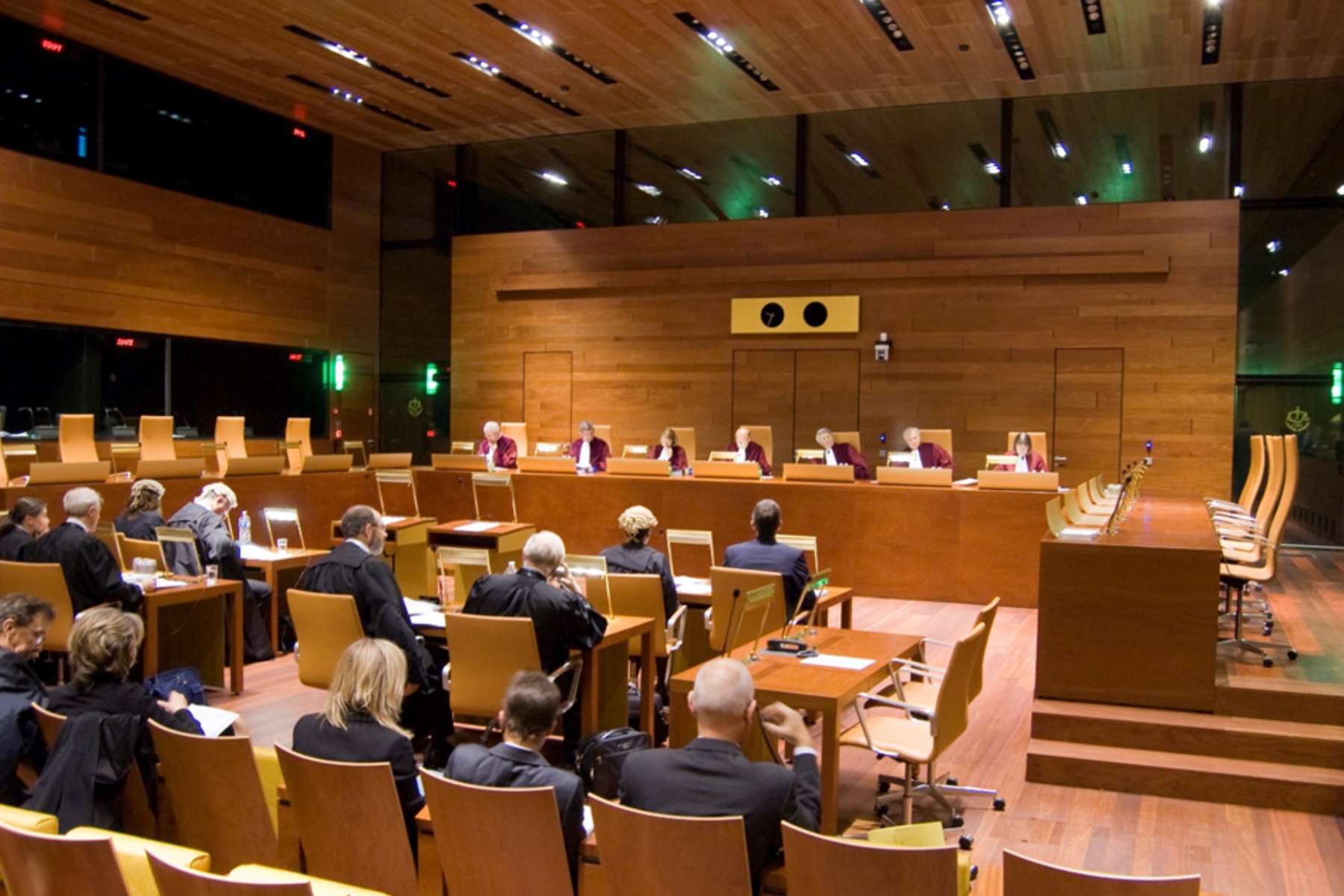On Wednesday, 15 November 2023 the EU General Court dismissed again a listing
challenge under the EU Russian sanctions framework by a Russian businessman, ‘OT’¹ .
The First Chamber ruled in extended composition, likely because the applicant raised a plea of illegality concerning criteria (d) and (g) of the Council decisions on which the listings are based and the Government of Belgium intervened in support of the Council.
The Judgment is only available in French.
https://curia.europa.eu/juris/liste.jsf?language=en&td=ALL&num=T-193/22
In this case the General Court provided further important observations on how it will deal with future challenges of individual sanctions against Russian businesspersons under the EU Russian sanctions framework.
Interim proceedings
The case was preceded by interim proceedings (T193/22 R and C526/22 P(R)) in which OT sought to grant him the right to join his family and to travel to the territory of the EU and to grant him the right, for the duration of the interim proceedings to dispose of his assets, in order to meet the needs of his family, within the limits of a capped sum. The General Court and on appeal the Court of Justice dismissed the interim measures sought.
Lawfulness of criteria (d) and (g)
The General Court held in response to the plea of illegality that criteria (d) and (g) are lawful. They did not violate the principle of equal treatment as they were not aimed solely at Russian nationals or certain economic sectors, but at any person providing material or financial support to Russian decision-makers and any influential natural person within the meaning of the applicable criteria.
The Court also rejected the argument that the criteria were not foreseeable and breached the principle of legal certainty.
It found that criterion (d) included natural and legal persons who, even if they do not, as such, have any connection with the destabilisation of Ukraine, provide material or financial support to the Russian decision-makers responsible for it, or take advantage of those decision-makers. It also found that criterion (g) referred to leading businesspersons active in sectors which provide a substantial source of income to the Russian Government.
In the Court’s view criterion (g) contained a logical link between targeting leading businesspersons operating in economic sectors providing a substantial source of income to the government, in view of the importance of those sectors to the Russian economy, and, the objective of the restrictive measures, which was to increase the pressure on the Russia and the cost of the latter’s actions aimed at undermining the territorial integrity, sovereignty and independence of Ukraine (see para. 49 of the Judgment).
The Court also emphasises that those criteria, as interpreted in the light of the legislative and historical context in which they were adopted, are not manifestly inappropriate having regard to the objective of the restrictive measures and the overriding importance of maintaining peace (see para. 58 of the Judgment).
The applicant and the concept of ‘leading businessperson’
The applicant’s name was included on the basis of criterion (g), on the grounds that he is a major shareholder in the Alfa Group conglomerate, which includes Alfa Bank, one of Russia’s largest taxpayers and that he is regarded as one of Russia’s most influential persons.
The General Court explained that the criterion (g) uses the concept of ‘leading businessperson’ without any other condition concerning a direct or indirect link with the Government of Russia or its actions. Also, the interpretation of criterion (g) was independent of the applicant’s personal involvement in the war or the existence of direct or close links or a relationship of interdependence with the political regime.
The aim of this criterion was to exert maximum pressure on the Russian authorities to put an end to their actions and policies destabilising Ukraine and to their military aggression against that country (see para. 138 of the Judgment) . The persons concerned must be regarded as ‘leading’ by virtue of their importance in the sector in which they operate and the importance of that sector for the Russian economy.
In determining the persons’ importance regard must have to their professional status, the importance of their economic activities, the scale of their capital holdings or their functions within one or more undertakings in which they pursue those activities (see para.143 of the Judgment).
The General Court found that OT was a leading businessman based inter alia on evidence of Forbes magazine which had compiled a ranking of the most influential Russian men and women, including politicians, members of parliament, governors and directors of the largest companies, and that the applicant was named in the list of the 100 most influential Russian people.
The General Court was of the view that even though OT had not held any executive
positions in ABH Holdings or its subsidiaries since 2010, the Council did not make an error of assessment in describing him as a ‘major shareholder in the Alfa Group conglomerate’ given that he held a 16.3% stake in ABH Holdings. That company owned Alfa Bank. While it was true that the applicant’s stake was a minority holding, it was nonetheless significant.
The applicant’s arguments that he had no influence on the Alfa bank’s operations and that he was therefore not an active businessman in the banking sector were considered irrelevant.
Involved in banking sector providing a substantial source of revenue
The General Court criterion (g) was held to be fulfilled as the applicant was involved in an economic sector, the banking sector, which provides ‘substantial’ source of revenue to the Government of Russia.
The General Court rejected OT’s arguments that the Alfa Group was not controlled by the Russian State and received no support from it, remained aloof from politics, used “western ethical standards” as not relevant for criterion (g). It found that the Alfa Bank was Russia’s largest private commercial and investment bank, forming part of the Alfa Group, a large private industrial and financial group in Russia, and it was one of the largest taxpayers in Russia.
Transferring capital holdings a day before listing
In respect of the applicant’s assertion that he had transferred his shares within the Alfa-Conglomerate a day before listing the General Court noted that the alleged change in situation on the day before the adoption of the initial measures, assuming it were true, would not allow the applicant’s status as a leading businessman to be ruled out (see para. 153 of the Judgment).
The Court observed that the concept of ‘leading businesspersons’ referred to factual
elements which were both ‘past’ and of ‘duration’. Accordingly, the grounds for including OT’s name on the contested lists may refer to a factual situation which existed before the initial listing. A recent change of the factual situation did not necessarily imply that the restrictive measures were obsolete (see para. 154 of the Judgment).
Maintaining OT on the list
The General Court referred to previous case law for what is necessary to maintain an individual on the lists and that the same evidence can be relied on provided that the grounds for inclusion remain unchanged and the context had not changed in such a way as to render that evidence obsolete. That context included not only the situation of the country in respect of which the restrictive measures had been adopted, but also the individual situation of the person concerned (see para. 169 of the Judgment).
It found that the context, the situation in the Ukraine, continued to remain serious (see para. 173 of the Judgment). The individual situation of the applicant had also not changed in the absence of proof of the transfer of the shares, alleged by the applicant, to a third person not related to him (see para. 183 of the Judgment).
Evidence related to the transfer of shares
The applicant as late as after the closure of the written procedure in December 2022 produced evidence that intended to show that he had indeed transferred his minority shareholding. These included certificates from the auditors of ABH Holdings and from that company’s law firm which refer to the applicant’s status as a minority shareholder, an agreement concerning the transfer of his shares in ABH Holdings, and the shareholding structure of that company.
The General Court considered the evidence too late and therefore inadmissible (see para. 132 of the Judgment). A certificate from the director of ABH Holdings annexed to OT’s reply stated that on 14 March 2022 the applicant sold his shares in that company to a third party.
Even though this evidence was considered admissible, the General Court found that the certificate was produced without any other official supporting document. Also, it did not specify in particular the transferee of the applicant’s shares or the terms of the transfer of those shares. In this respect the General Court also considered that the applicant in all his written submissions to the Court continued to refer to his status as a “minority shareholder” or “minority shareholder of Alfa Bank” (see para. 182 of the judgment).
Comments
The fact that this case was not successful for the applicant does not come as a surprise in view of the recent case law in respect of Russian businesspersons under the EU Russian sanctions framework (see previous article).
Also, in light of that case law, it was clear that a plea of illegality concerning criterion (g) would fail. The threshold to fulfil the criterion of a ‘leading businessperson’ is low as the findings show, including that it suffices to have a capital holding without the need to carry out any executive function in the company and it can be a minority holding.
It is further clear from the ruling that evidence to demonstrate an applicant transferred capital holdings must be submitted timely, during the written procedure. Alternatively, an applicant may provide a justification of exceptional circumstances for a late production of evidence which was missing in this case. The Court seemingly wants to have sufficient and convincing evidence that relevant capital holdings were indeed transferred, and that the transfer was done to an unrelated third party and not to related persons such as family members.
The General Court’s finding that being a ‘leading businessperson’ has factual elements of ‘past and duration’ 2 is significant. This appears to imply that to qualify no longer as a ‘leading businessperson’ in the event of sale of all relevant capital holdings does not occur over night. Future case law will show under what circumstances the Court will accept that somebody is no longer a ‘leading businessperson’ within the meaning of criterion (g).
Antje Kunst is an international lawyer and a member of Pavocat Chambers advising and representing individuals in a wide range of matters in the field of the EU’s Common Foreign Security Policy (CFSP) and takes instructions from individuals challenging EU and UN sanctions before the EU courts and international bodies.
¹ OT v Council, Case T-193/22, ECLI:EU:T:2023:716
² See para. 154 in French ‘la notion de « femme et homme d’affaires influents » se réfère à des éléments factuels qui s’inscrivent à la fois dans le passé et dans la durée”.
Photo Credit: Court of Justice of the European Union


















